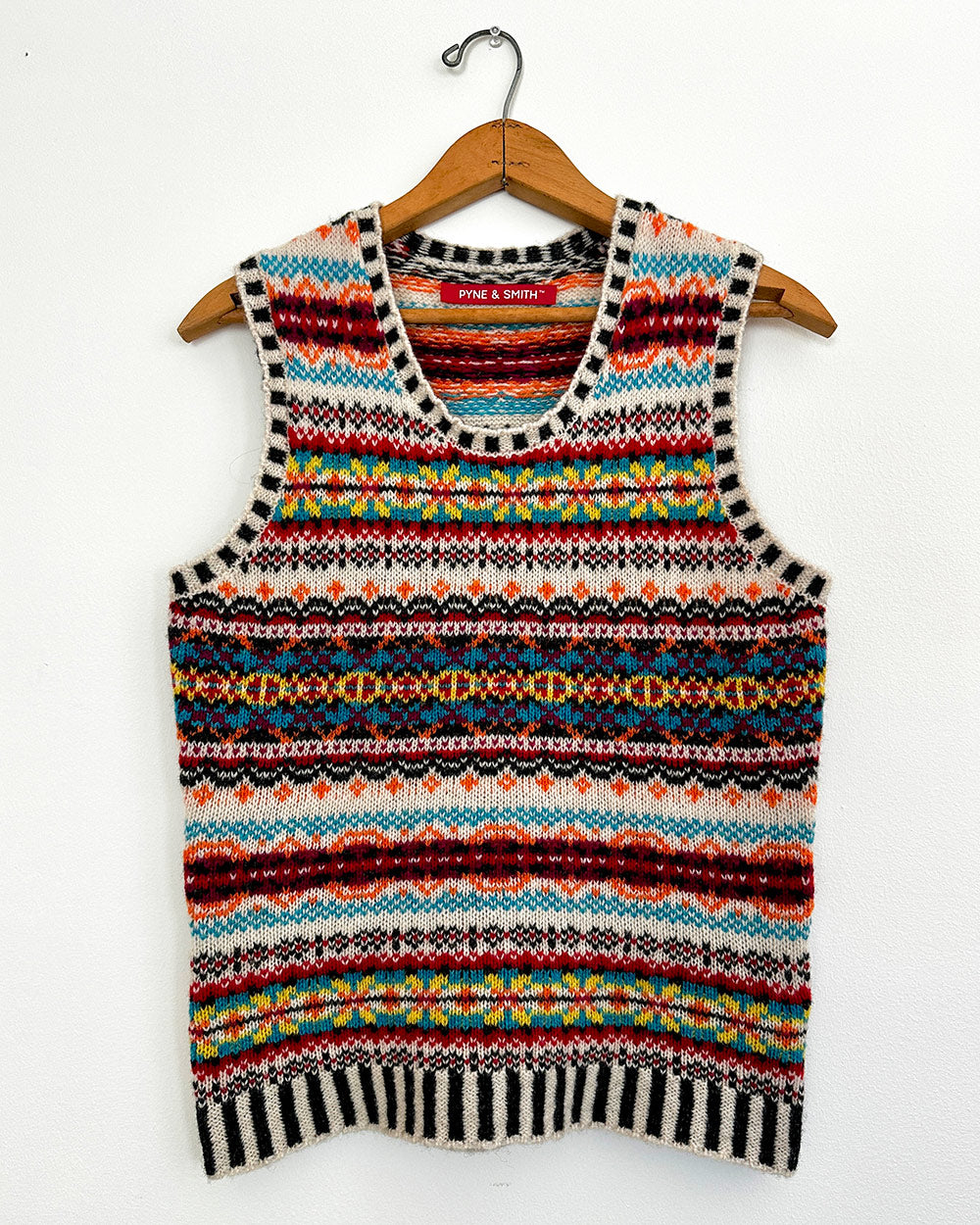'Fair Isle' is a broadly used term for colorful patterned knitwear that has a rich history, stemming from a tiny island in the Northern most part of the UK.
Fair Isle knitwear made its mark during the 1930’s as a colorful knitted statement piece, but its journey allegedly began in the early 19th century up in the north of Scotland on the island of Fair Isle.
Known as the most remote inhabited island in the far north of the UK - where the Atlantic Ocean meets the North Sea - this tiny island is surrounded by excellent fishing conditions, which has attracted its fair share of fisherman. Knitting was an important source of income for islanders on Fair Isle, and the colorful patterns we now recognize as Fair Isle knits were created as a pattern originally worn by fisherman.
It’s not known exactly who the Fair Isle pattern stemmed from, but historians think the skill was developed from the Vikings who settled on Fair Isle. From the 9th - 15th centuries, Fair Isle was considered a territory of Norway until 1469 when it was gifted to James lll of Scotland upon his marriage to the King of Denmarks daughter, Margaret.
The population shrank from around 400 in the early 19th century to a count of 55 inhabitants in 2015. As of 2021, the population was 48 (interestingly, the island became the first place in the UK where all adult inhabitants had been vaccinated against Covid-19.)
Fair Isle is known in the birding community as an important bird migration point, and it has a permanent bird observatory on the island. The National Trust for Scotland bought the island in 1954 and continues to protect its bird observatory status.
Fair Isle knits gained a huge following after a Royal Family Member, Edward VIII, wore his in public, and people fell in love with the intricate, colorful designs. Royalty continued to wear the colorful patterned knitwear keeping its status as an iconic piece of knitwear.
Our small line of Fair Isle sweaters are all ethically made with British wool, from wool milled within the UK. All garments are knitted sustainably in Scotland. The sweaters and vests are knitted with 100% Shetland wool and are available in XS-XL. The mittens and beanies are made from 100% merino wool.
